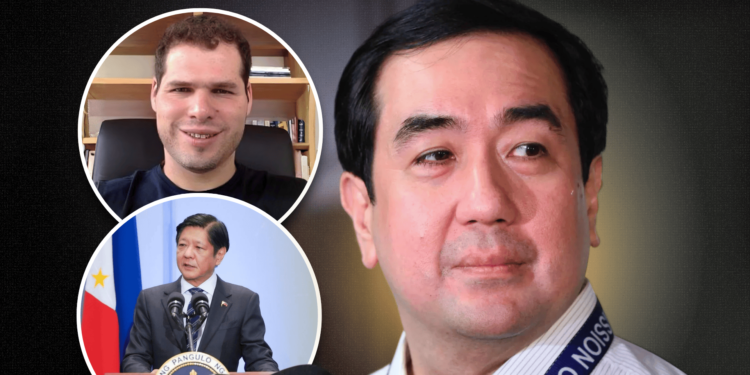The United States has formally charged voting technology company Smartmatic and its parent firm SGO Corp. in connection with an alleged $1 million bribery scheme involving former Commission on Elections (Comelec) chairman Juan Andres “Andy” Bautista.
The latest charges, filed on October 16, 2025, expand on an earlier August 8, 2024 indictment, which already named three Smartmatic executives — Roger Alejandro Piñate Martinez, Jorge Miguel Vasquez, and Elie Moreno — along with Bautista. The new indictment brings the corporate entity into the case, escalating it from individual criminal liability to corporate prosecution under U.S. anti-bribery and money-laundering laws.
Federal prosecutors in Florida accused Smartmatic of funneling bribe money to Bautista between 2015 and 2018 to secure and protect its contracts for the 2016 Philippine elections. According to the indictment, the company allegedly over-invoiced election equipment, created a slush fund, and disguised payments through offshore accounts.
The executives are accused of conspiring to move illicit funds through bank accounts in Asia, Europe, and the United States, while Bautista is accused of receiving the payments in exchange for official action as Comelec chair.
The scheme was uncovered through U.S. financial tracking and whistleblower information. Prosecutors also revealed that proceeds from a $282-million contract in Los Angeles County were allegedly diverted to help fund the bribes tied to the Philippines.
Bautista has denied receiving bribes. U.S. authorities have confirmed that he is not in their custody and is currently contesting extradition from Canada. In court filings, prosecutors identified him as a fugitive in the case. If convicted, the defendants face possible sentences of up to 20 years for international money laundering.
In the Philippines, Bautista has long faced questions over alleged unexplained wealth, which surfaced after his resignation from Comelec in 2017. His departure stripped him of immunity, exposing him to potential graft and plunder complaints. Smartmatic, meanwhile, has been disqualified by the Commission on Elections from future procurements, ending its long and controversial involvement in Philippine automated elections. The 2025 polls were the first in years not to use Smartmatic machines.
Smartmatic has denied the allegations, calling the case politically motivated and factually incorrect.
Bautista oversaw the conduct of the 2016 national elections, including the deployment of Smartmatic’s automated counting system. That race saw Leni Robredo narrowly prevail over Bongbong Marcos in the vice-presidential contest — a result that triggered one of the most consequential electoral protests in Philippine history. Marcos questioned the integrity of the vote and filed a formal protest before the Presidential Electoral Tribunal, a case that dragged on for years and deepened public doubt over the legitimacy of the vice-presidential outcome. The dispute kept the 2016 elections under intense political and legal scrutiny long after Bautista’s tenure at Comelec ended.












